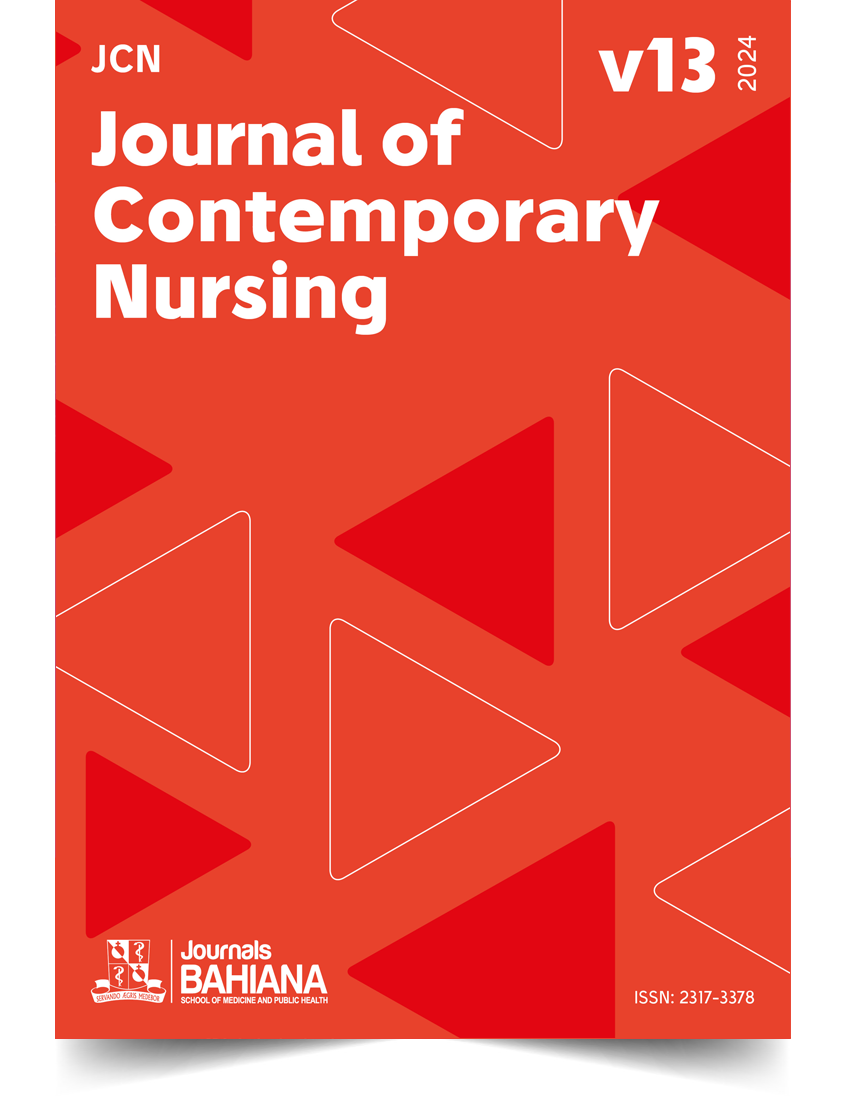Assessment of the quality of life of people with vitiligo: cross-sectional study
DOI:
https://doi.org/10.17267/2317-3378rec.2024.e5829Keywords:
Vitiligo, Quality of Life, Psychological stressAbstract
OBJECTIVE: To evaluate the impact of vitiligo on the quality of life of residents in Salvador. METHOD: Cross-sectional study carried out using a virtual questionnaire, developed on the Google Forms® platform. In addition to sociodemographic and clinical data, the Vitiligo-specific health-related quality of life instrument (VitiQoL) questionnaire was applied. Descriptive and inferential statistics were performed. To compare continuous non-parametric variables, the Mann Whitney and Kruskall Wallis tests were used. RESULTS: A total of 70 participants were gathered, with a median age of 31 years, predominantly women (70.0%), mixed race (44.3%), single (51.4%), and with higher education (54.3%). The median time since diagnosis was 10 years, and most had lesions in exposed areas (82.9%). There was a significant impact of vitiligo on quality of life (final score of 47 points), particularly concerning worry about disease progression (6.0 points), sun protection care (6.0 points), and interference with emotional well-being (5.0 points). Factors such as participation limitation, stigma, and behavior indicated a moderate to significant impact on participants' lives, with women being more affected (p=0.001). CONCLUSION: Vitiligo affects quality of life, with a greater effect among women. The emotional impact was significant, although daily activities, the ability to show affection, and to make new friends were minimally affected.
Downloads
References
(1) Azulay RD, Azulay DR, Abulafia LA. Azulay: Dermatologia. 7th ed. Rio de Janeiro: Guanabara Koogan; 2017.
(2) Ajose FOA, Parker RA, Merrall ELC, Adewuya AO, Zachariah MP. Quantification and comparison of psychiatric distress in African patients with albinism and vitiligo: a 5-year prospective study. Journal of the European Academy of Dermatology and Venereology. 2013;28(7):925–32. https://doi.org/10.1111/jdv.12216
(3) Marchioro HZ, Castro CC, Fava VM, Sakiyama PH, Dellatorre G, Miot HA. Update on the pathogenesis of vitiligo. An Bras Dermatol. 2022;97(4):478–90. https://doi.org/10.1016/j.abd.2021.09.008
(4) Castro CCS, Miot HA. Prevalence of vitiligo in Brazil—A population survey. Pigment Cell Melanoma Res. 2018;31(3):448–50. https://doi.org/10.1111/pcmr.12681
(5) Henning SW, Jaishankar D, Barse LW, Dellacecca ER, Lancki N, Webb K, et al. The relationship between stress and vitiligo: Evaluating perceived stress and electronic medical record data. PLoS One. 2020;15(1):e0227909. https://doi.org/10.1371/journal.pone.0227909
(6) Bibeau K, Pandya AG, Ezzedine K, Jones H, Gao J, Lindley A, et al. Vitiligo prevalence and quality of life among adults in Europe, Japan and the USA. Journal of the European Academy of Dermatology and Venereology. 2022;36(10):1831–44. https://doi.org/10.1111/jdv.18257
(7) Bibeau K, Ezzedine K, Harris JE, van Geel N, Grimes P, Parsad D, et al. Mental Health and Psychosocial Quality-of-Life Burden Among Patients With Vitiligo. JAMA Dermatol. 2023;159(10):1124. https://doi.org/10.1001/jamadermatol.2023.2787
(8) Bergqvist C, Ezzedine K. Vitiligo: A Review. Dermatology. 2020;236(6):1–22. https://doi.org/10.1159/000506103
(9) Andrade G, Rangu S, Provini L, Putterman E, Gauthier A, Castelo-Soccio L. Childhood vitiligo impacts emotional health of parents: a prospective, cross-sectional study of quality of life for primary caregivers. J Patient Rep Outcomes. 2020;4(1). https://doi.org/10.1186/s41687-020-0186-2
(10) Parker C, Scott S, Geddes A. Snowball Sampling. In: SAGE Research Methods Foundations. SAGE Publications; 2019. https://doi.org/10.4135/9781526421036831710
(11) Boza JC, Kundu R V, Fabbrin A, Horn R, Giongo N, Cestari TF. Translation, cross-cultural adaptation and validation of the vitiligo-specific health-related quality of life instrument (VitiQoL) into Brazilian Portuguese. An Bras Dermatol. 2015;90(3):358–62. https://doi.org/10.1590/abd1806-4841.20153684
(12) Levorato CD, Mello LMD, Silva ASD, Nunes AA. Fatores associados à procura por serviços de saúde numa perspectiva relacional de gênero. Cien Saude Colet. 2014;19:1263–74. https://doi.org/10.1590/1413-81232014194.01242013
(13) Ventura KMM, Miranda JP, Costa EQ, Santana DS, Rivera JGB, Costa RS. Review of therapies to increase the response of melanocytic activity to skin repigmentation of patients with vitiligo. RSD. 2021;10(11):e258101119460.
https://doi.org/10.33448/rsd-v10i11.19460
(14) Bú EA, Alexandre MES, Santos VM. Qualidade de Vida de Pessoas com Vitiligo: Um Estudo Exploratório Brasileiro. Revista de Psicologia da IMED. 2021;13(1):264. https://doi.org/10.18256/2175-5027.2021.v13i1.4236
(15) Oliveira CC. Qualidade de vida de pacientes com vitiligo e aspectos relacionados à extensão da lesão e índice relativo de melanina [master’s thesis] [Internet]. Aracaju: Universidade Federal de Sergipe; 2019. Available from: https://ri.ufs.br/bitstream/riufs/13049/2/CRISTIANE_CAVALCANTE_OLIVEIRA.pdf.
(16) Chen D, Tuan H, Zhou EY, Liu D, Zhao Y. Quality of life of adult vitiligo patients using camouflage: A survey in a Chinese vitiligo community. PLoS One. 2019;14(1):e0210581. https://doi.org/10.1371/journal.pone.0210581
(17) Boza JC, Giongo N, Machado P, Horn R, Fabbrin A, Cestari T. Quality of Life Impairment in Children and Adults with Vitiligo: A Cross-Sectional Study Based on Dermatology-Specific and Disease-Specific Quality of Life Instruments. Dermatology. 2016;232(5):619–25. https://doi.org/10.1159/000448656
(18) Bassiouny D, Hegazy R, Esmat S, Gawdat HI, Ahmed Ezzat M, Tawfik H, et al. Cosmetic camouflage as an adjuvant to vitiligo therapies: Effect on quality of life. J Cosmet Dermatol. 2021;20(1):159–65. https://doi.org/10.1111/jocd.13459
(19) Ruiz LP, Reis MJD. Sofrimento à flor da pele: Depressão e autoestima em portadoras de vitiligo. Interação em Psicologia. 2018;22(1). https://doi.org/10.5380/psi.v22i1.53548
(20) Silverberg JI, Silverberg NB. Association Between Vitiligo Extent and Distribution and Quality-of-Life Impairment. JAMA Dermatol. 2013;149(2):159. https://doi.org/10.1001/jamadermatol.2013.927
(21) Picardo M, Huggins R, Marino RA, Ogunsola M, Seneschal J. The humanistic burden of vitiligo: a systematic literature review of quality-of-life outcomes. Journal of the European Academy of Dermatology and Venereology. 2022;36(9):1507–23. https://doi.org/10.1111/jdv.18129
(22) Vizani RO, Maia FSM, Vasconcelos TP, Pimentel SLG, Silva VYNE, Kashiwabara TB. O vitiligo: uma doença orgânica e psíquica [Internet]. Brazilian Journal of Surgery and Clinical Research. 2014;6(3):47–52. Available from: https://www.mastereditora.com.br/periodico/20140501_181051.pdf
(23) Brasil E. Comissão aprova política nacional para tratamento de doenças de pele no SUS [Internet]. Câmara dos Deputados; 2024 jan. 11. Available from: https://www.camara.leg.br/noticias/1031289-comissao-aprova-politica-nacional-para-tratamento-de-doencas-de-pele-no-sus/
Downloads
Published
Issue
Section
License
Copyright (c) 2024 Ana Helena Ramos Carneiro, Camila Neves Sampaio, Edson Ferreira Lima Filho, Gabriel Santos Lopes, Helder Brito Duarte, Katia de Miranda Avena

This work is licensed under a Creative Commons Attribution 4.0 International License.
This work is licensed under a Creative Commons Attribution 4.0 International License.



